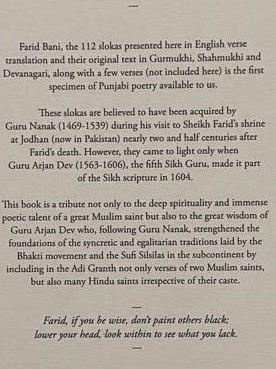These days I am translating selected poetry of a Punjabi Dalit poet, Madan Veera, and shortly going to publish the collection. Here is one of the poems from the collection:
Taxidermied Man
Atma
Rama
now
you are neither the veheda’s Atma
nor
the veheda’s soul
because
in the haze of bharm
in
the fog of dharm
your
identity is shrinking
your
existence has been circumscribed
You
are scattering into bits
floating
like specks of dust
rhapsodizing
about dharm
in
the rush of hollow slogans
in
the hope of securing your afterlife
in
the effort to break out of the cycle of eighty-four
seeking
the path to mukti
you
have become a dweller of the chimerical world
of
dharm gurus and dharmsthans
Searching
for moksha
you
have found like many others like you
your
own Sarvashaktimaan
that
matches your deluded mind
Now
the reins of your life
are
in the hands of
your
self-created Tyrant
your
folded hands are bound
in
your self-made handcuffs
your
closed eyes enclose
self-created
stale dreams
your
closed lips are iterating
a cycle of sleepy words
Now
to listen with your ears
to
see with your eyes
to
speak with your tongue
is
sinful for you
Now
you are no longer a
shining
burning
thinking
human being
you are a milch cow’s
taxidermied
dummy
of
the calf that died last month
stinking
stuffed with straw
that
we use
at
the time of milking
---
I wish to draw the reader's attention to the title of this poem, Taxidermied Man. While searching the Internet to check if I had used the right expression, I was horrified to discover that there indeed existed a real example of a Taxidermied Man. Please read the following to experience the horror perpetrated by a white man on a black man:
Taxidermied Man
Man stuffed and displayed like a wild animal
In the early 19th Century, it was fashionable for Europeans to collect wild animals from around the globe, bring them home and put them on display. One French dealer went further, bringing back the body of an African warrior. It was on display as a museum exhibit in France and Spain. Generations of Europeans gaped at his half-naked body, which had been stuffed and mounted by a taxidermist. There he stood, nameless, exhibited like a trophy titled El Negro.
This is what one visitor says on watching the display.
'This was not Madame Tussaud's. I was not staring at an illusion of authenticity - this black man was neither a cast nor some kind of mummy. He was a human being, displayed like yet another wildlife specimen. History dictated that the taxidermist was a white European and his object a black African. The reverse was unimaginable. I flushed and felt the roots of my hair prickling - simply from a diffuse sense of shame.'
Please go to the following link to read the full story on BBC website that makes one’s hair stand on end.
https://www.bbc.com/news/magazine-37344210
This touches the lowest depth of Whiteman’s racism. Thinking of what is happening in Gaza these days one wonders whether the European man has undergone any substantial change of heart.
Let us understand that ethnic cleansing is not new to the Western man. It has a long and continuing tradition: Cleansing of North and South Ameria, Australia, New Zealand and parts of Africa of their indigenous inhabitants.
And why forget Europe itself. The Europeans were bent upon cleansing Europe of the Jews, having had a centuries long history of persecution of the Jews culminating in what happened around the WWII. The Europeans, after the German massacre of 6 million Jews in the holocaust, succeeded in getting rid of the vast majority of their Jewish population pushing them off to Palestine, their so-called Promised Land, and helping them to cleanse Palestine of Arabs who have lived there for centuries. Isn't it ironic that the Zionist Jews who suffered the most at the hands of the European Christians, instead of wreaking vengeance on their persecutors, are using them to persecute the Palestinians who hardly had any serious history of quarrel with the Jews. Gaza is the latest playground of this White man's game of ethnic cleansing.


